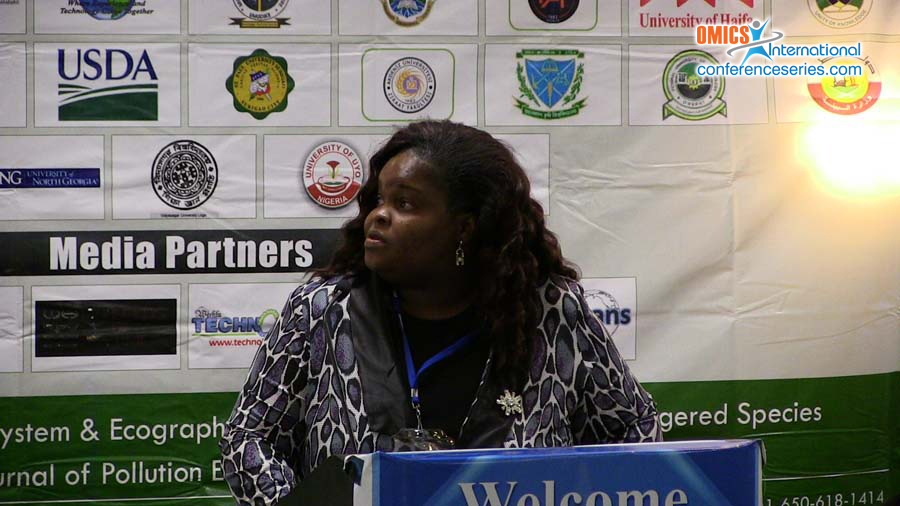
Ogbulie Toochukwu Ekwutosi
Federal University of Technology, Nigeria
Title: Study on the effect of interaction of plants and indigenous micro-organisms in degradation of n-alkanes in crude oil contaminated agricultural soil
Biography
Biography: Ogbulie Toochukwu Ekwutosi
Abstract
Agricultural soil samples from mapped out areas for the study were aseptically collected with sterile plastic sample containers and microbiologically analyzed to isolate autochthonous microbial flora. Seeds of four annual crops including Vigna unguiculata var unguiculata, Mucuna pruriens, Zea mays and T. occidentalis used were planted on the test soil and polluted with Bonny light crude oil twenty eight (28) days after plant growth. Thirty days after pollution, soil samples were collected within the rhizosphere of the test plants and examined microbiologically to isolate persisting microorganisms in the polluted soil. The variation in degradation of n-alkanes was ascertained using Gas chromatographic analysis on test soil samples and compared with the control. The pre microbial lab analysis of the soil under study revealed culturally, the presence of Penicillum sp., Aspergillus fumigatus, Aspergillus niger, Candida sp., Pseudomonas fluorescence, Acinetobacter baumanni, Bacillus mycoides, Klebsiella sp., Staphylococcus aureus and Escherichia coli whereas the absence of the last two isolates was observed during post microbial analyses. The results of the GC analysis on comparison to the control sample depict that plants kept in the green house were able to degrade alkanes within the range of C7 to C 12 and C32 to C40 while samples in the field degraded alkanes within the range C7 to C15 and C36 to C40. M. pruriens degraded C13 in addition. This study could be a promising tool in conversion of crude oil in contaminated agricultural soil to less toxic substances for enhanced remediation.



